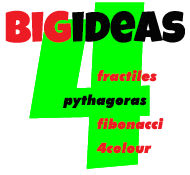
WHAT IS IT?
FLOW, The Secret to Happiness - Mihaly Csikszentmihalyi
What contributes to a life worth living? Watch this Great Video
Mihaly looks to those who find pleasure and lasting satisfaction in activities that bring about a state of "flow."
What does this mean for students? Watch the Video below. Flow Theory in Less than 5 Minutes.
WHEN YOU ARE IN FLOW, WORK SEEMS EFFORTLESS!
Your brain behaves differently. How?
By sending out tons of “happy hormones.”
Serotonin…
Dopamine…
Anandamide…
Norepinephrine…
The good stuff.
The stuff that makes your brain go from, “Yeah…I guess this task sounds fine” to, “Hell yeah! Let’s do this!”
Your brain literally changes its chemicals to promote creativity, productivity, and learning.
And that’s when Flow State really amps up.
You are in FLOW when:-

You are completely involved in an activity for its own sake.
The ego falls away.
Time flies.
Every action, movement, and thought follows inevitably from the previous one, like playing jazz.
Your whole being is involved, and you're using your skills to the utmost. And it feels fantastic.
Watch this short video - Concept of Flow (3.48mins)
In this interview, Caroline Miller discusses the concept of flow, or what athletes call being in the zone, and why it matters to happiness.
She also talks about when we are most likely to get into flow
Flow Writing brings FLOW, WELL; to Writing.
HOW does it feel?

Here's how some year 2 to year 6 students felt.
I feel fabulous because words come rushing out of your mind, you cannot finishing writing all the words!
It feels amazing. It feels like your imagination is doing the work.
It feels really good and you just can’t wait to write it down.
It was just like my brain was sucking it out onto the paper.
I felt I knew everything I had to write.
So lost in imagination.
I felt like my hand just kept moving down the page and I didn't have to think.
While I was in the flow I thought I could finally accept what I felt mattered like I had a sense of power I never had before.
When I was writing I felt fantastic and free, like I could do anything I wanted.
It was truly amazing, way out of reality.
Felt like my mind fell onto the paper.
It feels like you just can’t stop writing because it feels like too much fun.
HOW do you do it?
SOME Input Use the ideas from the IMAGINAIRE webpage linked here
DISCUSS FLOW Explain it. Ask students if they have ever had a FLOW experience. Sometimes it occurs when you are reading, or playing sport or when you are painting or doing something that you love. For me it's when I am writing. You will probably get a few "Oh Yeah!" moments.
YOU will need
1 pencil or pen and paper or notebook per student, have this ready.
WRITE for 10 minutes only 10 minutes - Use a stopwatch.
No talking, no moving, pencil on paper at all times.
Write straight from your brain. As if your brain was coming out through your pencil.
DO not stop writing.
If you think you are finished go back into your mind and look for more ideas.
Don't be distracted.
Don't worry about spelling, reading your writing, drawing pictures, using a rubber, drawing lines, talking to your neighbour or anything else.
JUST write.
See if you can get into FLOW with your writing where nothing else matters, time flies, nothing else matters but what you are writing and you are totally focused.
JUST you, your pencil and your fabulous brain.
You will be amazed at how much students write, how well they write and the clarity they bring to their writing.
WHAT's next? Evaluation & Reflection
ASK students if they thought they did get into FLOW with their writing.
Congratulate the ones who did. Make it important and amazing and desirable. Ask them how they felt when they were writing in flow. Ask students to jot done a sentence about how they felt when they were writing. Use these sentences plastered up around the room to reinforce how great it is to write in FLOW.
THEN
Ask some students who would like to to, to share their writing with the group.
ASK listening students to make comments.
Explain to students that their role is most important in assisting the writer, encouraging them and helping them to improve their work. Their job is to support the writer, all writers look for feedback from their peers to help clarify improve and extend their writing.
Comments should be encouraging, students should mention what they thought was great, ask for clarification and offer creative supportive suggestions on how to improve or add to their colleagues writing.
Then ask students to work in groups or pairs and share their work with others, to help them expand and develop their writing. Use the above instructions to guide the group discussions.
You can also ask groups to evaluate their success on completion.
Use this Evaluation Your Writing Group Form you can download it here.
Please Note not all students may choose to share their work, this is just fine.
TO Publish or not TO Publish
The Journey May End here
This is as far as some of the work goes. Some students may wish to continue and publish what they have written. However I would expect 1 in 10 pieces of writing only be taken to publication.
Students can collect their writing and keep their ideas to develop later.
Write a number of pieces and then select the one they like best for publication. They may wish to 'polish' it in a group and get some feedback. They may wish to add drawings or photographs or paintings.
WHY Do I Write?
I love writing. You might have guessed this.
I WRITE because it helps me sort things out,
to put things in to perspective.
I WRITE because I love playing with language and finding a right word/s.
I WRITE because writing is fun.
I WRITE to capture moments. Life is ephemeral, always changing by writing things down I capture them and keep them the same for ever.
© Cathy Brown 1998 - 2025 © All images & Videos Cathy Brown Located in Sydney NSW Australia all rights reserved.
No unauthorised reproduction without written permission. Webmaster & Designer - Cathy L. Brown
Virtual Teacher is committed to ensuring that our AI systems & assistants are used responsibly & ethically. Our AI is designed to support educators & students by providing personalized learning experiences, enhancing engagement & promoting understanding. We prioritize the safety, privacy, & security of our users, ensuring that our AI tools operate transparently & align with the best practices in the industry.
The NSW AI AssessmentFramework requires self assessment to deterimin Determine whether your system / project should use the AIAF. All AI projects used by Virtual TEacher are Low Risk or No Risk applications. Check out the Risk Evaluation page attached.


